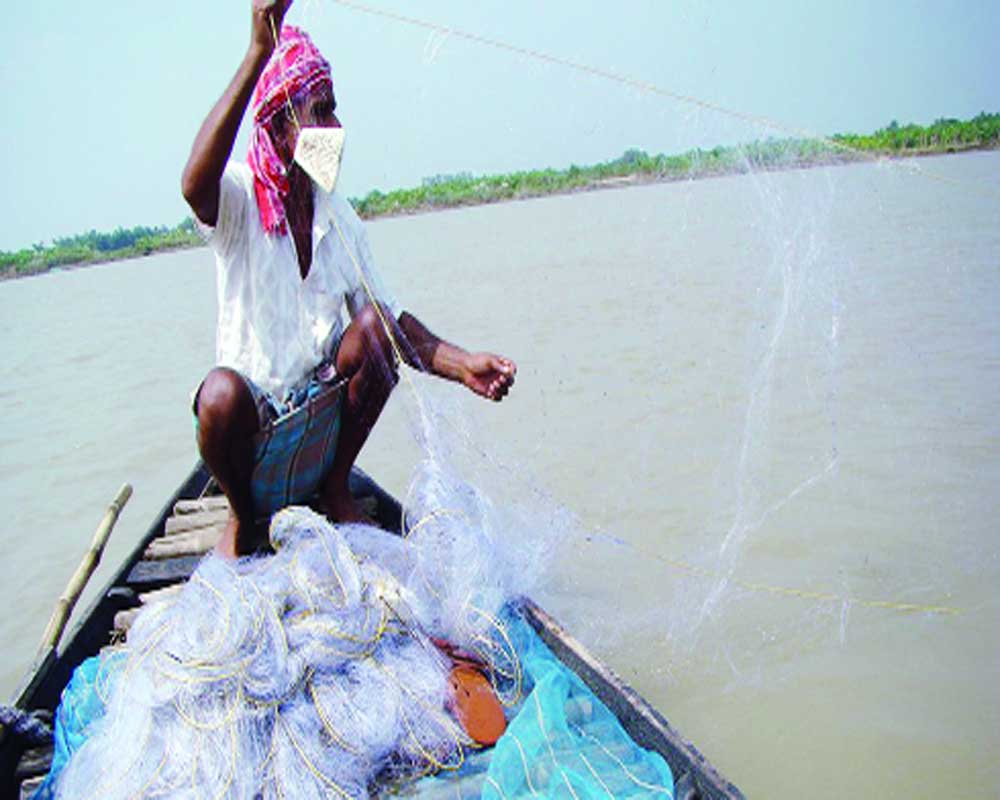With dwindling sizes and numbers reported for Himalayan species, we are staring at a crisis in our economy and ecology
The problem with discussions around climate change is that they often veer around the imminence of a cataclysm when fact remains that it has not only become a real-time crisis but is also impacting our daily lives. If a report by the Wildlife Institute of India (WII) is to be believed, around 150 fish species in the Himalayan region, including the territories of Uttarakhand, Himachal Pradesh, Jammu & Kashmir and Arunachal Pradesh, are facing extinction. Admittedly, climate change and resultant warming have meant an altered temperature of waters that host schools of fish and most importantly their food chain. This has further meant new predatory species are breeding and gaining ground in warmer waters. Then there are changes in river flow patterns due to ill-planned constructions and dams. Even now fisheries experts are rarely consulted before riverine projects are cleared. But the trigger this time seems to be human activity which is relentless about ignoring the environment for economics. The numbers of the much-vaunted golden mahseer, for example, have declined in much of its distribution range and are now considered threatened due to pollution and waste overload in the rivers, habitat loss and over-fishing. Mahseer is an extremely sensitive species that can hardly tolerate a modified water environment and has decreased in size over the last century. Why this is alarming is because India is home to 15 of the 47 mahseer species in the world. Freshwater fish species globally are under grave threat, according to the International Union for Conservation of Nature (IUCN)’s Red List. Over half of Japan’s endemic freshwater fishes and more than a third of freshwater fishes in Mexico are threatened with extinction, the report said. Even India’s fish population is dipping. Combine this with a decline in resources due to overfishing and a weakened output between spawning cycles. One cannot forget how hilsa, Bengal’s most favourite fish, has seen a sharp fall in recent times. This forced the State Government to ban fishing for a while. Consequently, the delicacy had to be imported from Bangladesh. Yet unlimited demand has led to illegal fishing. One cannot really blame the desolate fishermen, who have been battling dwindling catches and returns.
The fishery crisis is growing bigger by the day considering marine fish populations are rapidly vanishing too. With our seas and oceans now a dumping ground for waste and plastics, there are reports of schools of fish being washed up ashore. In May, a report by the Intergovernmental Science-Policy Platform on Biodiversity and Ecosystem Services presented an alarming picture of the global health of marine ecosystems. It said that one million species around the world are on the brink of extinction and called for the need to put fisheries reforms in place so as to encourage sustainable seafood production and resilient ecosystems. It further said that a third of fisheries are presently overfished and that more than 33 per cent of marine mammal species are threatened with extinction. Back home, the internet was flooded with pictures of “blue waves” along Marina beach, an indicator of luminescent planktons which are detrimental for fish populations. Reversing this trend is of utmost importance whereby we need a “Project Tiger” like status for our fish wealth, be it in the rivers or sea. There must be a standardised fishing code that binds bonafide permits limiting catch amounts and time slots, pacing catch cycles according to seasons, encouraging safe breeding waters, issuing species-specific advisories and awareness pamphlets and most importantly bringing in a law on ensuring fish diversity (it is not included in the Wildlife Protection Act). Otherwise, we could look at a bigger collapse of our riverine and coastal economies.


























